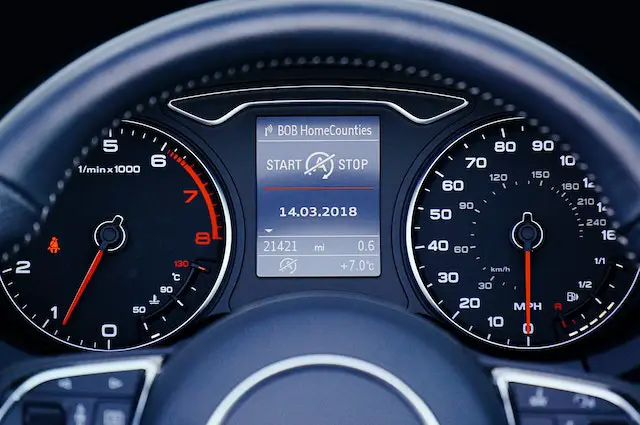The fuel efficiency of a car is an important factor to consider when purchasing a vehicle. Miles per gallon, or MPG, is a measurement of how many miles a car can travel on a single gallon of fuel. A higher MPG means that a car is more fuel-efficient and can save you money on gas over time.

What is considered a good MPG for a car? The answer depends on various factors such as the type of vehicle, driving conditions, and personal preferences. Generally speaking, a good MPG for a car is one that provides a balance between fuel efficiency and performance.
To determine what a good MPG is, we need to understand the different types of vehicles and their fuel efficiency ratings. The most fuel-efficient vehicles are electric and hybrid cars, which can achieve an MPG equivalent of up to 150 or more. These vehicles use electricity or a combination of gasoline and electric power to achieve high fuel efficiency.
For conventional gasoline-powered cars, a good MPG can range from 25 to 40, depending on the size and type of vehicle. Small cars, such as subcompact and compact cars, tend to have higher MPG ratings because they are lighter and require less fuel to operate. Midsize and full-size cars tend to have lower MPG ratings because they are larger and require more fuel to operate.
SUVs and pickup trucks are typically less fuel-efficient than cars because they are heavier and have larger engines. However, newer models of SUVs and trucks are designed to be more fuel-efficient, with some achieving up to 30 MPG on the highway. It’s important to note that fuel efficiency can vary depending on the driving conditions, such as city versus highway driving, and how the vehicle is driven.
When considering what a good MPG is, it’s also important to think about personal preferences and priorities. Some drivers prioritize fuel efficiency above all else and are willing to sacrifice performance for better MPG. Other drivers prioritize performance and are willing to accept lower MPG ratings in exchange for a more powerful engine and better driving experience.
Another factor to consider is the cost of gas in your area. If gas prices are high, a car with better fuel efficiency may be more desirable. However, if gas prices are low, a car with a lower MPG rating may be more affordable and practical.
In general, a good MPG for a car is one that provides a balance between fuel efficiency and performance, based on your personal preferences and driving habits. It’s important to consider factors such as the type of vehicle, driving conditions, and gas prices when evaluating fuel efficiency ratings.
To improve the fuel efficiency of your car, there are several things you can do. First, make sure your car is properly maintained, with regular oil changes, tire rotations, and other maintenance tasks. This can help ensure that your car is operating at its optimal level and using fuel more efficiently.
Second, adjust your driving habits to maximize fuel efficiency. This can include driving at a steady speed, avoiding rapid acceleration and hard braking, and reducing the use of air conditioning and other accessories that can drain fuel.
Third, consider upgrading to a more fuel-efficient vehicle if your current car is not meeting your needs. Newer models of cars, SUVs, and trucks are designed to be more fuel-efficient and can save you money on gas over time.
In summary, a good MPG for a car depends on several factors, including the type of vehicle, driving conditions, and personal preferences. Generally speaking, a good MPG for a conventional gasoline-powered car is between 25 and 40, while electric and hybrid cars can achieve even higher MPG equivalents. To improve the fuel efficiency of your car, make sure it’s properly maintained, adjust your driving habits, and consider upgrading to a more fuel-efficient vehicle if necessary.